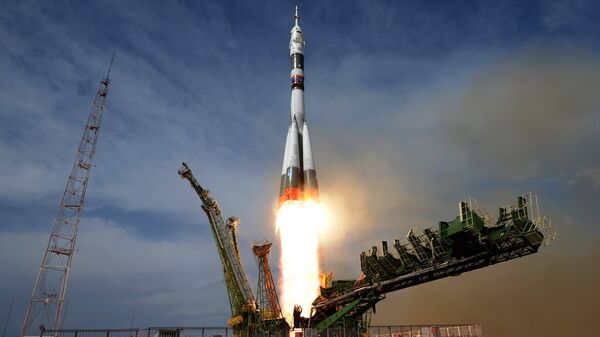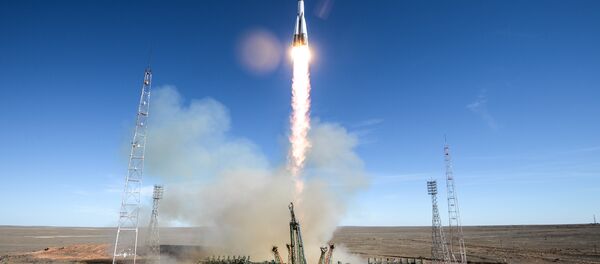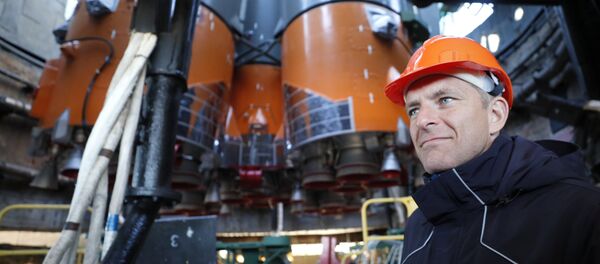The accident involving the Soyuz-FG was caused by a faulty sensor on one of the rocket's side blocks during disengagement from the central block, Oleg Skorobogatov, chairman of the emergency commission assigned to investigate the incident, told reporters in Moscow on Thursday.
"The separation of the D-Unit from the [central] A-unit was registered, and then it hit the fuel tank, opening it," he added.
The sensor was damaged during the rocket's assembly at the Baikonur spaceport in Kazakhstan, the probe commission head said. "We have conclusively established that the only place where [damage to the sensor] could have taken place was the Baikonur cosmodrome during the rocket's assembly."
Two more Soyuz rockets at the Baikonur and Kourou spaceports with the same defect have been discovered, Skorobogatov said, with additional checks introduced into the rocket assembly process. Roscosmos will rebuild the two rockets to eliminate any sensor-related issues, made additional checks.
Also Thursday, the Kremlin confirmed that Roscosmos chief Dmitry Rogozin has kept the president up to date on the situation surrounding the Soyuz-FG incident, and will do so again during his next working meeting with Vladimir Putin.
Space-Rocket Center Progress, the company which builds the Soyuz rockets, has already introduced new control measures, including photo and video documentation, company general director Dmitri Baranov said. Specifically, additional checks were introduced during preparation of the Soyuz 2.1B rocket, which was launched on October 25. These included monitoring of the operation of the sensor mentioned by the commission, as well as control of the rocket assembly into a launch package.
Roscosmos deputy durector Alexander Lopatin noted Thursday that the October 11 accident caused Roscosmos "reputational damage," but noted such incidents were not unique to Russian cosmonautics, and said that accidents are important lessons which must be learned from. Roscosmos will make every effort to prevent such emergencies in the future, Lopatin stressed.
The next planned Soyuz spaceflight will take three people, including Russian commander Oleg Kononenko, and flight engineers Anne McClain (USA) and David Saint-Jacques (Canada) to the ISS on December 3. Last week, Saint-Jacques said the October 11 emergency abort made him feel "even more confident" about the design of the Soyuz spacecraft and its emergency systems. "It's a dangerous job. We expect that there's a risk. We expect that not every launch is going to be perfect," the Canadian astronaut said, speaking to Space.com.
Last month, Roscosmos head Dmitri Rogozin promised that Ovchinin and Hague would have another shot at an ISS mission in 2019.



